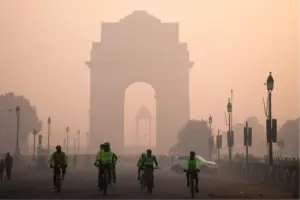
India is one of the eight countries accounting for more than half of the world’s unvaccinated children as of 2023, according to a new analysis published in The Lancet. The study highlights ongoing global disparities in childhood immunisations.
The study, conducted by the Global Burden of Disease (GBD) 2023 Vaccine Coverage Collaborators, provided updated global estimates of vaccine coverage across 204 countries and territories between 1980 and 2023.
The researchers analysed 11 vaccine-dose combinations recommended globally by the World Health Organization (WHO), covering diseases such as measles, polio, tuberculosis, diphtheria, tetanus, and pertussis.
Also Read | India develops portable test kit for detecting Nipah virus
In 2023, the researchers found that 15.7 million children worldwide had received no doses of the diphtheria, tetanus, and pertussis (DTP) vaccine in their first year. Of these, 1.44 million were in India.
Apart from India, the other countries contributing to more than 50% of the global ‘zero-dose’ children were Nigeria, the Democratic Republic of Congo, Ethiopia, Somalia, Sudan, Indonesia, and Brazil.
“Despite monumental efforts over the past 50 years, large numbers of children remain under- and unvaccinated,” said Dr Jonathan Mosser of the Institute for Health Metrics and Evaluation (IHME) at the University of Washington. Persistent inequalities, pandemic disruptions, and rising vaccine hesitancy are slowing progress and raising the risk of preventable disease outbreaks, he added.
Globally, vaccine coverage has doubled since 1980. The number of zero-dose children decreased by 75%, from 58.8 million in 1980 to 14.7 million in 2019, before the COVID-19 pandemic.
However, the study noted that progress had stalled or reversed in many countries since 2010. Measles vaccination rates declined in 100 out of 204 countries between 2010 and 2019. Coverage also declined in 21 of 36 high-income nations for at least one key vaccine.
Researchers said that achieving the 2030 global target of halving the number of zero-dose children (compared to 2019) requires much faster progress. So far, only 18 out of 204 countries are on track. The burden remains highest in sub-Saharan Africa (4.28 million) and South Asia (1.33 million), with India continuing to account for a significant share.
“These findings underline the urgent need for targeted efforts to close immunisation gaps and ensure all children benefit from lifesaving vaccines,” the authors wrote.








